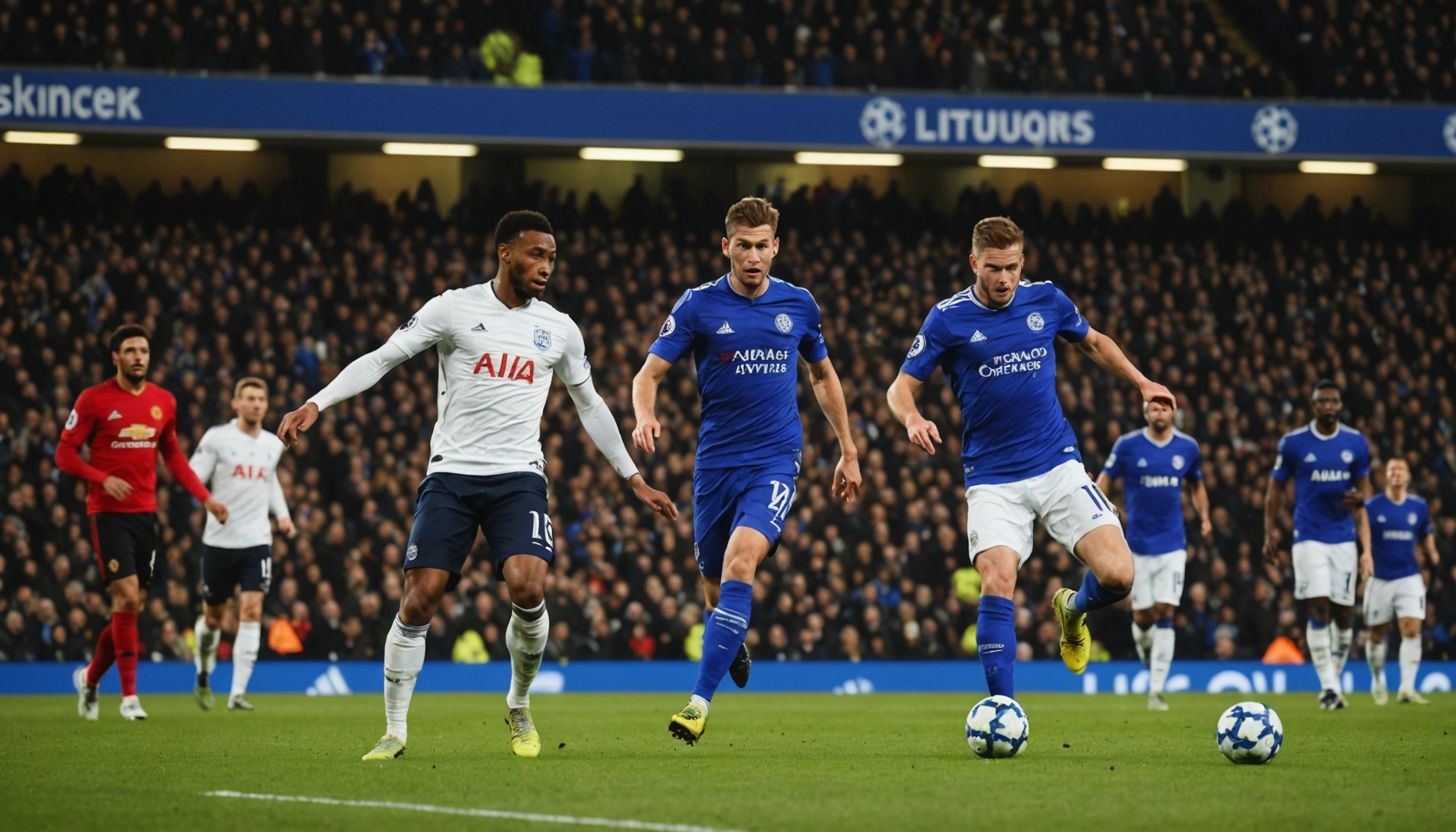Who Is In And Out Of English Teams’ European Squads?
Discover which English Premier League players are included or excluded from their clubs’ European squads this season, with key young talents and notable omissions.

By Editorial
Introduction To English Teams’ European Squad Selections
As European club football resumes following the international break, Premier League clubs have finalised their squads for the Champions League, Europa League, and Conference League campaigns. These selections reveal intriguing stories of emerging youth prospects, high-profile exclusions, and strategic choices by managers aiming for continental glory.
In this article, we explore who has made the cut and who has missed out in the English teams’ European squads for the 2025/26 season, providing insight into squad rules, standout players, and what these decisions mean for the clubs involved.
Champions League squads: Rising stars and surprising omissions
The Champions League squads submitted by English clubs showcase a blend of youthful promise and experienced campaigners. Arsenal's inclusion of 15-year-old Max Dowman is a headline-grabbing move. Dowman, who made his Premier League debut at just 15 years and 234 days, is poised to become the youngest player ever to feature in the Champions League should he play before his 16th birthday. This would break the current record held by Borussia Dortmund’s Youssoufa Moukoko, who debuted at 16 years and 18 days.
Arsenal’s squad also features eight senior summer signings, including Martin Zubimendi and Eberechi Eze, signalling the club’s intent to compete strongly. However, notable youth players like winger Ethan Nwaneri and defender Myles Lewis-Skelly are absent from the main squad but can still be registered on List B, which caters for younger players eligible for the first team.
Conversely, Liverpool’s 22-man squad omits high-profile forward Federico Chiesa, a significant surprise given his experience and attacking prowess. This exclusion highlights manager Arne Slot’s tactical preferences or fitness considerations ahead of the group stages.
Tottenham Hotspur have also made some unexpected decisions. Their £30 million summer signing Mathys Tel failed to make the squad, while other newcomers such as Randal Kolo Muani and Xavi Simons secured places. Injured players like James Maddison, Dejan Kulusevski, and Radu Dragusin are understandably missing.
Newcastle and Manchester city: strategic squad building
Newcastle United’s squad adjustments reflect their summer transfer activity. Forwards Nick Woltemade and Yoane Wissa have been brought in to replace Alexander Isak, who moved to Liverpool, with both forwards included in the squad. Additionally, summer signings Aaron Ramsdale, Antony Elanga, Jacob Ramsey, and Malick Thiaw feature in Eddie Howe’s plans.
Manchester City, fresh off their Champions League victory last season, have bolstered their squad with Italy’s Gianluigi Donnarumma, who joins as one of four goalkeepers. Despite an injury expected to sideline him for two months, new midfield signing Rayan Cherki is named in Pep Guardiola’s squad, hinting at long-term plans. Other new additions such as Rayan Ait-Nouri and James Trafford also make the list, demonstrating depth and versatility.
Europa league and Conference league squads: key absences and new faces
In the Europa League, Nottingham Forest’s squad selection raised eyebrows. Their record signing Omari Hutchinson, who cost £37.5 million last summer, was omitted alongside four other newcomers, including goalkeeper Angus Gunn and defenders Oleksandr Zinchenko, Jair Cunha, and Cuiabano. The absence of forwards Jota Silva and Taiwo Awoniyi, both linked with potential moves away, further highlights a squad in transition.
Aston Villa’s 21-man squad similarly features some surprises. Midfielder Ross Barkley is a major absentee, while Argentina goalkeeper Emiliano Martinez remains despite transfer rumours. New signings Victor Lindelof, Harvey Elliott, and Jadon Sancho have been included, signalling Villa’s ambition to progress in Europe.
Crystal Palace, competing in the Conference League, have kept captain Marc Guehi in their squad despite a last-minute transfer collapse to Liverpool. His presence provides leadership and stability for Palace’s European campaign.
Understanding UEFA squad rules and their impact
UEFA regulations dictate the composition of squads for European competitions, influencing club selection strategies. Clubs must submit two lists: List A, with a maximum of 25 players including eight homegrown players, and List B, an unlimited list for players born on or after 1 January 2004 who have been eligible for the first team for at least two years.
Homegrown players must be split between four "club-trained" players, developed at the club for at least three years between ages 15 and 21, and four "association-trained" players, who have been trained in the same country under similar conditions. This rule aims to encourage youth development within clubs and associations.
Also, any player featuring in qualifying rounds for a club can appear for a different club in the group stages or later in the competition, adding tactical flexibility.
What these squad selections mean for English clubs’ European ambitions
The inclusion of young talents like Max Dowman and Rio Ngumoha reflects a growing trend among English clubs to integrate youth into top-level European football, balancing experience with potential. Meanwhile, omissions of established players such as Federico Chiesa and Mathys Tel indicate managers’ tactical preferences or fitness concerns that could affect team dynamics.
As the Champions League and other UEFA competitions progress, these squad choices will be tested under pressure. Clubs like Manchester City and Liverpool, with deep squads, have options to rotate and adapt, while others like Nottingham Forest and Aston Villa face challenges in balancing new signings with existing players.
For fans eager to follow every twist and turn, it’s worth checking out related coverage, such as the Sky Sports football watchalongs with Man Utd legends, which offer expert insights and lively fan experiences throughout the European fixtures.
Conclusion: The evolving landscape of English clubs in Europe
English Premier League clubs’ European squad selections highlight an evolving football landscape, where youth potential, strategic signings, and regulatory compliance converge. These squads not only shape matchday tactics but also signal long-term ambitions in European football.
As the season unfolds, watch how these squads perform and adapt, bearing in mind the mix of emerging stars and seasoned professionals. For comprehensive updates on English football and European competitions, explore our detailed guides, including a comprehensive guide to UK and Ireland football leagues and cups.
Related topics
Editorial
Sports expert at SportsScoop
Specialist in sports analysis and journalism
Related articles
Want to read more?
Explore our comprehensive collection of sports articles and analysis, or contact us for more information.



